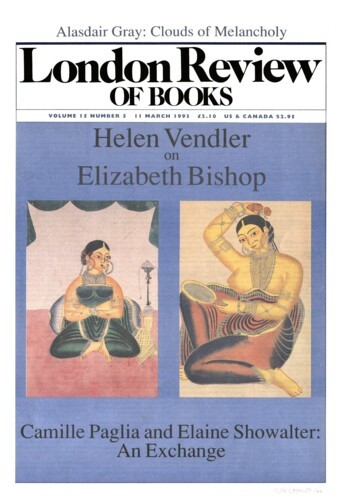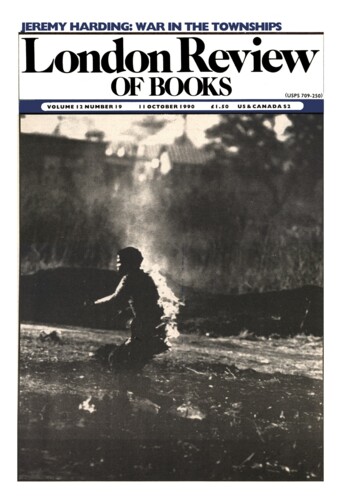Angus Calder
Angus Calder Revolutionary Empire: The Rise of the English-Speaking Empires from the 15th Century to the 1780s will be published in March. He is the author of The People’s War: Britain 1939-1945.
The Sadist
12 March 1992
Distaste for Leavis
11 October 1990
The Clearances
22 January 1987
Pieces about Angus Calder in the LRB
The brief possibility of a different kind of history
Julian Symons, 12 September 1991
A myth now, what is that? ‘A purely fictitious narrative embodying some popular idea concerning natural or historical phenomena,’ my Shorter Oxford says, adding: ‘Often used...
Kiss Count
John Campbell, 19 April 1984
The spectacle of members of the upper class setting out solemnly and in a spirit of scientific research to study the lower classes in their natural habitat is a peculiarly Thirties phenomenon....
Freaks of Empire
V.G. Kiernan, 16 July 1981
‘Revolutionary empire’ is a bold term which may be taken in various senses. Like the Roman and Arab before it, but on a grander scale, the British Empire was a powerful force in...
Read anywhere with the London Review of Books app, available now from the App Store for Apple devices, Google Play for Android devices and Amazon for your Kindle Fire.
Sign up to our newsletter
For highlights from the latest issue, our archive and the blog, as well as news, events and exclusive promotions.




